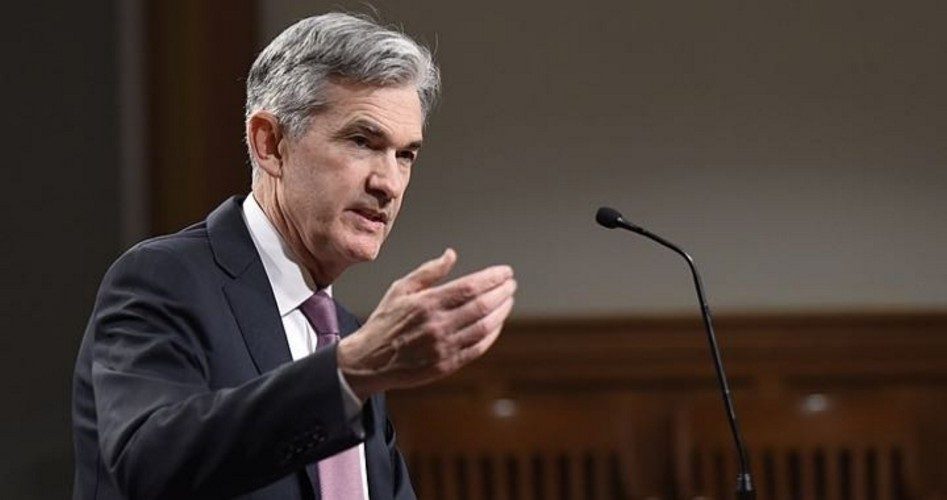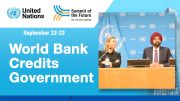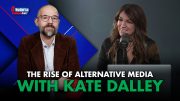
The jobs report issued by the Department of Labor on Friday was unequivocally positive. Every sector of the economy, save one, saw robust gains in employment, with 312,000 new jobs created in December beating forecasters’ predictions by 30,000 jobs. In addition, the DOL revised October’s and November’s numbers upward by 58,000 jobs. Even the rise in the unemployment rate from a record low of 3.7 percent to 3.9 percent was explained by the number of new people entering the job market.
The number of unemployed workers dropped by 300,000 over the last 12 months, while the labor participation rate jumped. Wages improved as well as employers were forced to bid higher for a shrinking pool of workers to fulfill vacancies. Especially notable was the jump in the percentage of working-age Americans employed, which hit a five-year high.
Year-over-year, employers added 220,000 jobs a month in 2018, compared to just 182,000 jobs monthly in 2017. And this in a supposedly “tight” labor market. In December every private-sector industry except information technology added jobs, with some of the biggest gains coming from construction, education, and health services.
Fed Chair Jerome Powell (shown) commented on the jobs report at an economic conference in Atlanta on Friday morning, admitting that it reflected a growing economy. As for raising interest rates further in 2019, Powell backed off, saying, “With the muted inflation readings that we’ve seen coming in, we will be patient as we watch to see how the economy evolves.” But then he added that he and his board will be prepared to “shift” Fed policy over interest rate hikes and the continuing “runoff” of bonds from its balance sheet “significantly, if necessary” to pursue its goals.
As this writer has taken pains to show, those goals go far beyond its mandate to “maximize economic growth while keeping inflation in check” (source: the Chicago Federal Reserve Bank). As noted at The New American on Thursday, Powell is the handmaiden of the international banking establishment and has clearly been instructed to slow the Trump economy sufficiently to keep the president from winning reelection in 2020:
If, as we have surmised repeatedly, the Fed’s purpose is to slow and then eventually stop the Trump economic juggernaut just in time for the 2020 presidential election, then it is working. Goldman Sachs has just reduced its growth outlook for the first half of 2019 from 2.4 percent to two percent, and the bank expects growth to slow further in the second half of the year to 1.8 percent.
Morgan Stanley, another insider bank, expects the economy, thanks to the Fed’s interest-rate hikes and its continuing “autopilot” liquidation of its bonds, to slow to 1.7 percent this year, with quarterly growth declining to just one percent in the July to September quarter.
It’s helpful to remember that the Fed is the brainchild of the international banking establishment, as so carefully revealed by G. Edward Griffin in his tome The Creature from Jekyll Island. As part of the Deep State, why would globalists not direct Powell to slow Trump’s economic recovery and stall it just in time for his reelection campaign?
As for Powell’s words, they comforted investors on Wall Street, who jumped upon hearing what they wanted to hear: that he was going to back off on raising interest rates for the time being and that he might even consider slowing his ongoing “runoff” of maturing bonds that has been starving the economy of liquidity. But a look at what is happening to the Fed’s balance sheet reveals that Powell’s words are just that: words. The “runoff” on bonds has shrunk the Fed’s balance sheet by $435 billion in the last 12 months, from $4.5 trillion to just over $4 trillion. That’s 10 percent shrinkage as its policy of “quantitative tightening” continues into the New Year.
Powell is a political animal, and thus it is wise to ignore his words and to focus instead on his actions.
Photo of Jerome Powell: Federal Reserve via Wikimedia
An Ivy League graduate and former investment advisor, Bob is a regular contributor to The New American magazine and blogs frequently at LightFromTheRight.com, primarily on economics and politics. He can be reached at [email protected].
Related article:



